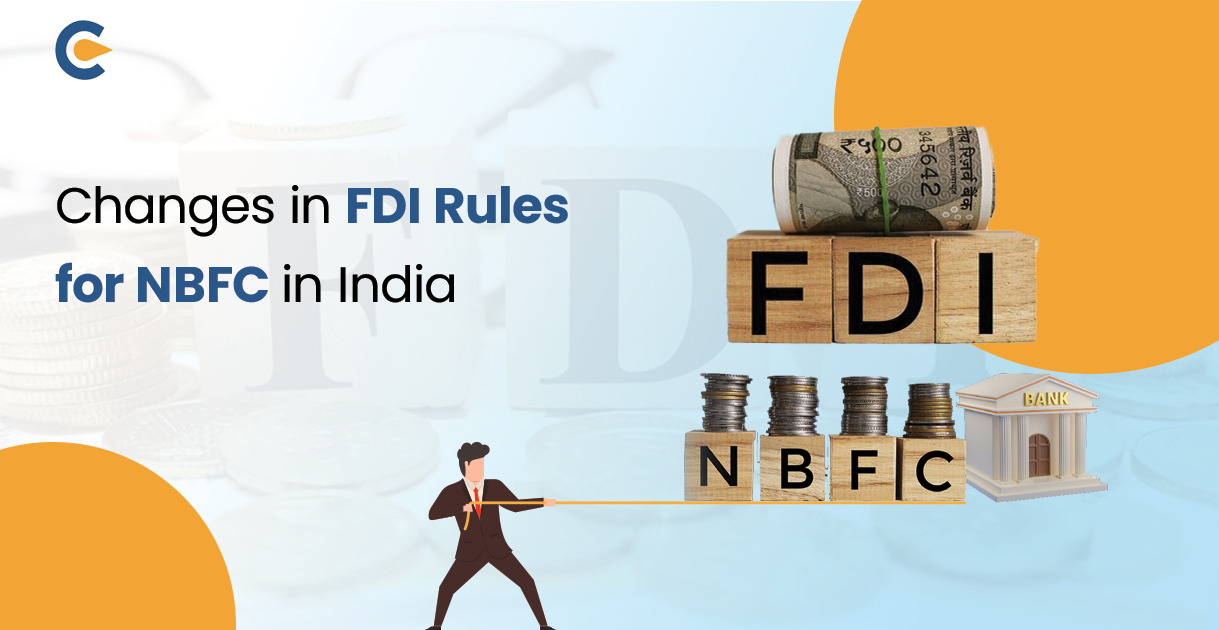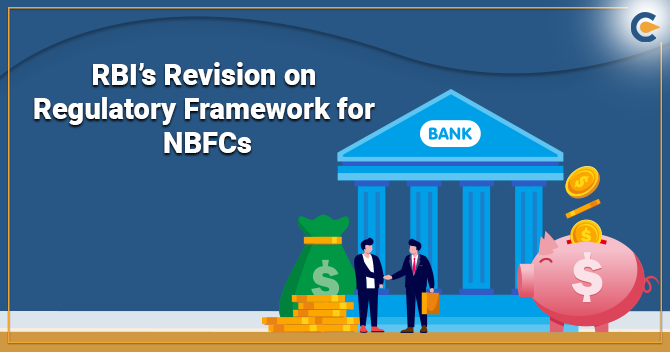FDI rules for NBFCs: Foreign shareholders have shown a great deal of desire to invest in the Indian NBFC industry since the country’s economy was liberalized in 1991. The Reserve Bank of India periodically Issues regulations and recommendations that apply to non-bank financial companies (NBFCs). Since 1997, foreign direct investment in non-bank finance companies has been permitted up to 100%, pursuant to the government’s minimum capitalization requirements.
In this blog, we will discuss the FDI rules for NBFCs in India and the meaning of NBFC and FDI.
What is Foreign Direct Investment (FDI)?
An investment made into a company or enterprise in a different country to create a long-term stake is known as foreign direct investment or FDI. If a financial investment creates a long-term stake in an international company, it qualifies as an FDI. If a stakeholder owns at least 10% of the right to vote in a company, an enduring interest is created.
What are NBFCs?
Non-bank financial companies (NBFCs) are companies that offer a range of economic goods and services, such as management of assets, insurance, and advances, but lack a license to conduct banking business. NBFCs are not permitted to take payments from the public, unlike banks. On the other hand, a limited number of people, including shareholders, executives, and family members, are allowed to make deposits with them. Because they offer credit as well as additional financial services to those who cannot access conventional banks, non-bank financial companies (NBFCs) are essential players in the financial industry.
They also give investors access to other investment options, especially in rural and semi-urban regions where banks might not be well-established. All the NBFCs must acquire an NBFC registration certificate issued by the RBI.
Changes in FDI Rules for NBFC in India
Foreign Direct Investment in an NBFC is when a foreign entity invests in a Non-Banking Financial Institution in India to gain control of the company’s ownership. The FEMA (Foreign Exchange Management Act) of 2000 regulates all aspects related to foreign direct investment in India. There are two ways to make FDI in an NBFC in India: the government route and the automatic route.
FDI has always been considered a complex and time-consuming procedure in India. However, with liberalization in place, this view has changed over the years.
FDI is regarded as a significant financial component in our nation. Following the financial downturn in 1991, foreign direct investment (FDI) gradually increased in the country, which is currently ranked among the top 10 FDI locations worldwide. The FEMA (Foreign Exchange Management Act) regulates foreign exchange, while the RBI Regulation Act of 1934 governs non-bank financial institutions (NBFCs).
Under the automatic method, foreign investment was permitted at 100% for a few designated activities, subject to minimum capitalization requirements. Financial consulting, factoring, stock broking, merchant banking, portfolio management services, underwriting, asset management, credit card business, venture capital, investment advisory services, custodial services, etc., are among the designated activities.
What RBI Notified Regarding FDI Policy for NBFCs?
The Reserve Bank of India notified on 9th September that certain relaxations will be made in the foreign direct investment (FDI) policy for NBFCs. The FDI rules for NBFCs changed slightly, and a few amendments were made. Non-banking financial companies using the automatic route for other financial services are now permitted to make one hundred percent FDI.
All the activities that fall within the purview of ‘other financial services’ will encompass those overseen by financial regulatory authorities like the Securities and Exchange Board of India, Reserve Bank of India, Insurance Regulatory and Development Authority of India, Pension Fund Regulatory and Development Authority, or other agencies authorized by the Indian government for similar activities.
The FDI rules for NBFCs also state that non-banking financial companies that are not subject to the rules and regulations of the financial industry must first receive approval from the government. Following the liberalization of FDI rules for NBFCs, FDI constituted a substantial percentage of the funding source for this industry. It has been established that the modifications are beneficial to NBFC’s expansion in the cutthroat financial sector.
Following are the changes in the FDI rules for NBFC:
- Risk Management and Regulatory Compliance
All the operations in the marketplace are carried out under a strict and intricate regulatory framework. It can be a little difficult for non-banking financial companies to adhere to these strict and complicated regulations. All the required compliance by the RBI has to be fulfilled by NBFC in the foreign funding. In order to overcome this, the Reserve Bank of India has simplified the process of filling and converted it into an online form procedure.
- 100% Foreign Direct Investment in Automatic Route
Section 47 of the Foreign Exchange Management Act stipulates that 100% of foreign direct investment must go through the Automatic route for non-bank financial companies under the updated FDI standards. Before this, investing under the automated route was confined to a mere 18 NBFC activities, and investment activities were not included among these 18 NBFC activities. The Foreign Exchange Management Regulations, 2000, including all of its revisions, are now applicable to the investment and sector-specific restrictions.
- Elimination of Minimum Capitalization Norms
Since the majority of authorities now have fixed minimum capitalization standards in place, the minimum capitalization standards will be repealed. Additionally, minimum capitalization criteria apply to the compilation of non-fund-based activities.
To Wrap Up
In conclusion, it can be seen that the government is taking steps to improve and encourage the FDI in India. FDI rules for NBFC are amended from time to time to ensure that all the requirements are met. With the introduction of FDI in the NBFC sector, the status of capital inflow has seen great changes. Allowing foreign direct investment in non-banking financial companies has proved to be a game changer, and many positive changes are seen due to this in the country’s economy.
Frequently Asked Questions
Is FDI allowed in NBFC?
100% FDI is allowed in NBFCs, subject to the minimum capitalization norms issued by the government.
What is the difference between FDI and financial investment?
FDI entails direct investment, offering control and a long-term outlook. On the other hand, FPI involves investing in financial assets without control, typically short- to medium-term.
What is the role of RBI in FDI?
A key role in developing FDI policy is played by the RBI in collaboration with the Indian government. These regulations outline the industries that qualify for foreign direct investment (FDI), investment entry points, allowable ceilings, and other regulatory standards.
What is not permissible for NBFC?
Accepting the demand deposits is not allowed in the NBFC. The NBFC cannot take any part in the activities related to settlement and payment. The non-banking financial companies can also not issue the cheques that are drawn. Like the other banking institutions, the Credit Guarantee Corporation facility and deposit insurance are not present to the NBFC's depositors.
Is FDI allowed in small finance banks?
In India small finance banks, foreign direct investment is allowed as per the FDI rules and regulations that are followed in the private banks. The small banks are permitted to hold foreign shares.
Is Overseas Investment Permitted in NBFCs?
Yes, overseas investment is permitted by the foreign companies in the non-banking financial companies.
Read also about A Guide On Complete Checklist For NBFC Compliance











